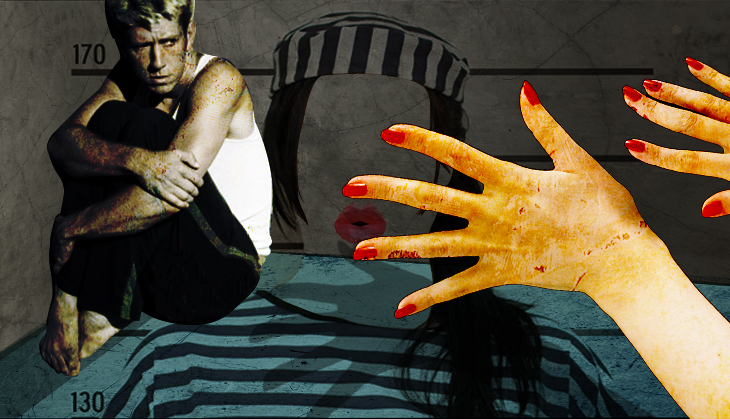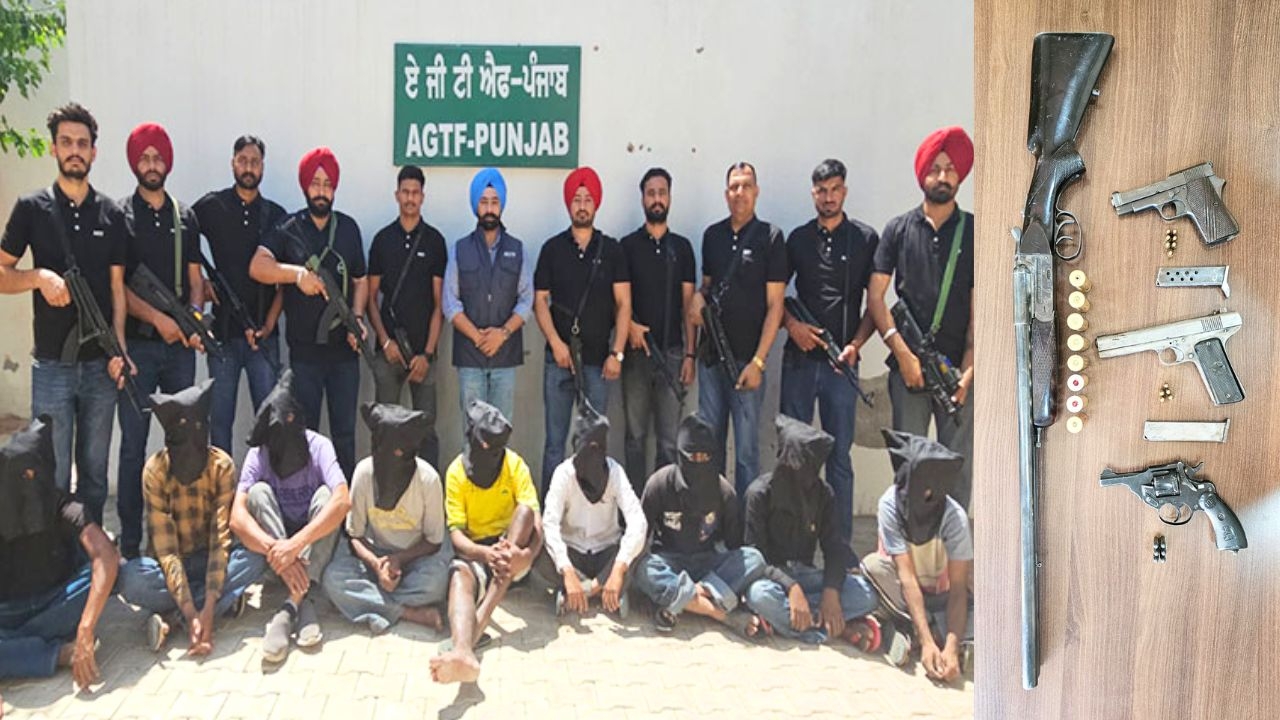
A 30-year-old woman in the South African city of Durban was given a 10-year prison sentence on Tuesday. Her crime? She allegedly raped a 13-year-old boy.
Her name, which has been withheld by the media to protect the identity of the boy, will be entered in the register of sex offenders. Additionally, she is now prohibited from working with children.
The argument posed in court on her behalf was that she was a young single mom with kids. She argued that she had been under the influence of alcohol when she threatened to beat the minor if he didn't comply with her sexual demands.
The court thwarted this claim, with the state prosecutor counter-arguing that, as a mother, she should have known better. Also, she had shown no remorse when questioned, thereby subjecting the boy to testimony that made him have to relive the trauma.
Read: Is it easy to get away with sodomy in India? A look at 'male rape' laws
While the sentence for her crime needs to be recognised as a progressive move, the obvious play of patriarchy in viewing the criminal as a mother first needs to be called out. Because how can a woman, a parent, a natural protector, a nurturer ever cause harm to a child? How can she, as a woman, be so sexually deviant that she can force herself upon a person?
Women, through history, culture and art have always held the role of the pacifist. Women don't wage war. Women don't hurt. Women don't rape.
And when they so blatantly do, society doesn't know how to react to them. The law doesn't know how to curb them. And generation after generation, we fail to recognise this as a reality.
The Durban court, however, did. The director of public prosecutions, advocate Moipone Noko, said,
"This serves as a warning to like-minded individuals that rape is a serious offence committed by both men and women, and the punishment is equally serious."
So while the argument around her being a mother is problematic, the reality closer home is much grimmer. India in 2016, despite having a terribly high crime rate, doesn't consider the possibility that a woman can rape.
The (f)laws
Definition of rape: "unlawful intercourse done by a man with a woman without her valid consent." (Section 375 of the Indian Penal Code, 1860)
Definition of gang rape: "Where a woman is raped by one or more in a group of persons acting in furtherance of their common intention, each of the persons shall be deemed to have committed gang rape within the meaning of this sub-section." (Sec.376 Subsection 2- g)
Rape is, therefore, clearly seen as a crime committed by a man against a woman. The law does take cognisance of the rape of a man, but even then the underlying assumption is that the perpetrator is a man, and the crime therefore is of "unnatural sex" (sodomy) criminalised under IPC Section 377. An earlier Catch article looked into the problem with this law, more specifically that consent should not be the sole demarcation, but rather the form of sex or rape should.
When it comes to a female perpetrator, we do not even have a half-baked law to recognise her crime. Why is that? Do we really think women are entirely incapable of committing a heinous crime like rape? Or is rape just a specific issue because we assume a woman cannot biologically rape?
But can she?
Rape is, as mentioned above, still seen as an act of penile intercourse. Now, this works in favour of a female rapist because a) she doesn't have the means to do so - a penis, b) she cannot rape a man because she'd need his penis to be erect for the act. And an erect penis is viewed as a sign of consent.
Except that's a myth. The body can be coerced, and rather uncomfortably so, to get ready for sexual intercourse. Men get erections in completely non-sexual circumstances, and sometimes even when they are threatened. So much so that there's a phenomenon called the "combat boner" wherein a soldier, during combat, gets an erection due to the adrenaline rush during war.
Alternatively, a woman looking to rape a man can also induce 'electroejaculation' which is basically a scientific method used on farm animals to make them mate. This electrical method of gaining an erection is also used as a form of treatment for erectile dysfunction. She could also use Viagra and other methods to constrict the blood flow to the penis like 'cock rings' and other bindings.
While this is merely the physiological aspect of how a woman can rape a man, she can also subject him to various other forms of sexual abuse by using her mouth, hands, objects etc. She can also violate another woman in the same manner. And our laws need to recognise that.
Female rapists
In July 2015, two women in Delhi allegedly kidnapped their auto driver, attempted to confine him in their flat and attempted to drug and rape him. The man escaped by jumping from the first floor and broke his legs. The women faced three counts of criminal conduct - kidnapping, wrongful restraint, and extortion.
Not attempted rape as a male perpetrator in a similar situation might have.
In November 2015, a 25-year-old woman Gayle Newland from Chester, England, duped her female friend into have sex with her and became an internet sensation. She pretended to be a man named Kye Fortune to befriend her victim online. The victim had had penetrative sex with her 10 times before she realised that Gayle was wearing a prosthetic penis. Gayle Newland got an eight year sentence.
The contrast is apparent. But both these cases highlight one thing in common: the need to talk about female rapists.
While the first case clearly illustrates how India has failed to see women as capable of committing rape, the second, for its sensational nature, shows how there still is an immense amount of shock value attached to the possibility of a woman sexually manipulating and exploiting another.
A 22-year-old woman from an affluent family in Delhi was allegedly sexually exploited by her own sister through childhood. She narrates that she was seen as a spoilt, rich kid who wouldn't listen to her family members. But she has now let go. "I've forgiven her," she says. "My sister got married and stopped controlling my life, and that's when I decided that the only way to cope was to forgive her. So I have."
She never faced the dilemma of reporting the crime because that wasn't an avenue open to her. In a similar case, a 24-year-old man in Delhi recounted his ordeal of abuse perpetrated by a girl older to him by a few years.
He was in preschool and used to play hide and seek in a friend's house. The girl would routinely lock him in a room and allegedly molest him.
"I remember I was blindfolded once. Because you get blindfold during hide and seek. And she just played with me, as in with my body," he says.
When he tried to open up to another male friend, the boy told him to let go because he too had been exploited by her. Further, societally, the de facto response to a situation like this is that the boy should be grateful, after all, isn't sex supposedly what men want most.
In India, when a girl and boy have sex below the age of consent, it is assumed that the girl was raped, regardless of whether it was consensual sex or not. And in the above mentioned cases, the girls were not only not exploited, but they were the exploiters. This is precisely where our system fails the victims of female perpetrated sexual abuse.
What we can change
The law isn't in our hands. But our understanding of rape culture is.
Consent is the operative word to differentiate rape from sex. But a female perpetrator of rape is committing such an uncharted crime that the lines of consent are blurred there.
Read more: Can sex with animals be an act of love? Looking at bestiality & zoophilia
Both men and women need to identify that they are capable of heinous crimes, and that the choice is theirs to not go down that road. And when it comes to rape, consent cannot be assumed just if the body is sexually aroused. A 'no' in every sense of the word is a no.
Our language needs to evolve. It needs to identify the possibility of a 'weak' male and a 'strong' female. Even expletives like 'behen-chod, maa-chod' need to stop celebrating male sexual power, because while this chest-thumping brand of patriarchal language celebrates male perpetrators, it also allows female predators to lurk in its shadows.
More in Catch:
Buddha in a diplomatic jam: Nepal-China take on India over Buddhist heritage
Tension: the Great Indian Diagnosis (and what it's got to do with Kangana Ranaut)
Jammu & Kashmir: Mehbooba proposes amnesty for militants. Will it work?
Telecom operators to benefit from SC's verdict on call drops; Digital India hurt
First published: 12 May 2016, 11:32 IST







![BJP's Kapil Mishra recreates Shankar Mahadevan’s ‘Breathless’ song to highlight Delhi pollution [WATCH] BJP's Kapil Mishra recreates Shankar Mahadevan’s ‘Breathless’ song to highlight Delhi pollution [WATCH]](http://images.catchnews.com/upload/2022/11/03/kapil-mishra_240884_300x172.png)

![Anupam Kher shares pictures of his toned body on 67th birthday [MUST SEE] Anupam Kher shares pictures of his toned body on 67th birthday [MUST SEE]](http://images.catchnews.com/upload/2022/03/07/Anupam_kher_231145_300x172.jpg)






